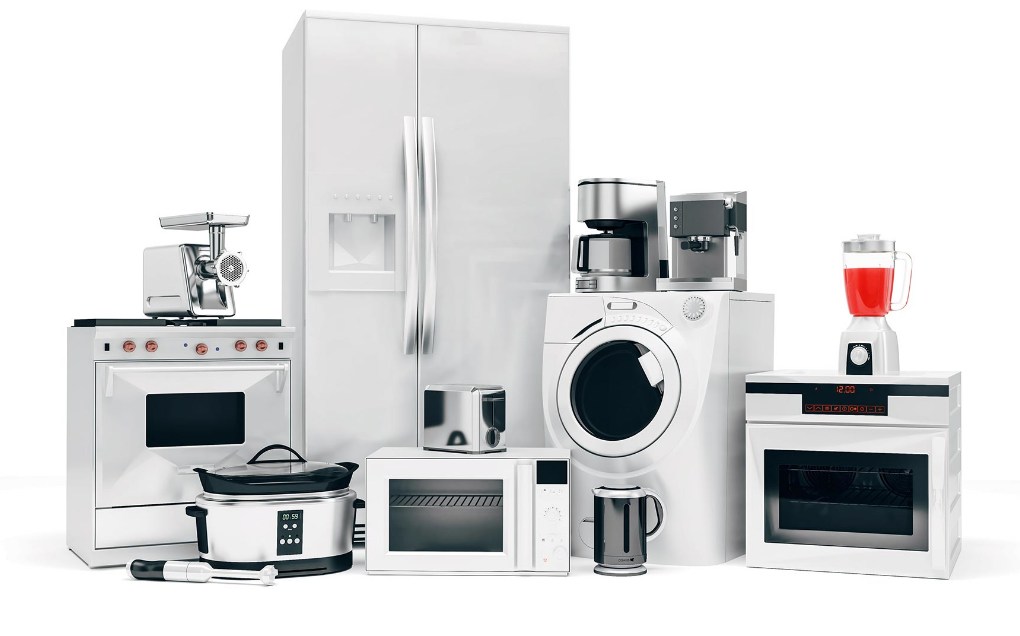When key appliances like your refrigerator or washing machine are on the fritz, it often feels like a race against time to get them fixed. But before you ring up the first repair person you come across, it’s important to know what the potential costs are and what factors determine them. With some knowledge, you won’t overpay, and you will make the decision that is right for both your budget and your needs.
Thank you for reading this post, don't forget to subscribe!Below, this guide will cover the most common things homeowners need to know when it comes to appliance repair costs: How much does appliance repair cost, on average, for different appliances; factors that impact the price of appliance repair and even tips on how to minimize repair costs and extend the life of your appliance.
Average price for appliance repair:
The price for appliances repair is very depending on the type of apianence as well as it severity of the problem. Here’s a rundown of average repair costs (based on survey data from select stores as well as industry estimates) for common household appliances to provide a little clarity before you enter the shop.
-
Refrigerators
Average cost: $200–$400
Typical repairs: Repairing bad compressors, swapping out thermostats, sealing leaks or addressing electrical problems.
-
Ovens and Stoves
Average cost: $150–$400
Typical repairs: Replacing heating elements; repairing burners that won’t ignite; fixing the control board.
-
Washing Machines
Average cost: $150–$300
Typical repairs: Replacement of motor belts, drum bearings, broken door seals and water pump problems.
-
Dishwashers
Average cost: $100–$300
Typical repairs: Addressing drainage problems, repairing door latches, swapping out failed spray arms.
-
Dryers
Average cost: $100–$300
Popular repairs: Fixing a heater, drum issues, or faulty wires.
-
Microwaves
Average cost: $50–$150
Frequent repairs: Fuse replacement, door switch repair and control plan repair.
Remember these are ballparking figures. The price varies according to the brand, the damage, and other factors.
Things That Influence How Much You Will Pay for Repair
Knowing the factors that affect the price of the repair can keep you from overpaying. These are the common baselines that affect the cost of a repair.
-
Labor Costs
Most of the repair cost will be labor, and this will be a few hundred dollars. Hourly rates can vary, from $50 to $150 depending on where you live and the technician’s skill level.
-
Replacement Parts
If any parts need replacing, you will have to pay the cost of the parts on top of your total bill. For instance, a refrigerator’s compressor can be between $100–$500, and an oven’s heating element can be between $30 and $100.
Location And Accessibility Of The Appliance
Repairs in high-cost urban areas are typically more expensive than in lower cost regions, as are repairs in remote areas or those that now require a contractor to drive further to the site. For an appliance that is built in or otherwise difficult to remove, technicians may charge extraneously for the additional time and effort.
Age of the Appliance
Older appliances are often more costly to service because they require special order parts. Conversely, newer models with, say, high-tech features or smart components, could also be more expensive to repair.

DIY vs. Professional Repair
When your appliance stops working, the first question is often: “Am I capable of fixing it, or should I call in a professional?” Each option has its pros and cons, so here’s a quick rundown to help you make up your own mind.
DIY Repairs
Pros:
- More affordable up-front costs (no labor expenses).
- Instant resolution without the wait of a technician.
- A nice educational tool, if you like getting busy with stuff.
Cons:
- Chance of additional harm if not done properly.
- Troubleshooting is mostly limited to minor repairs unless you have the know-how.
Safety Issues With An Electric Or Gas Appliance.
Professional Repairs
Pros:
- Experience guarantees correct diagnosis and repair.
- Specialized tools and replacement parts.
- Warranty on parts and labour for security.
Cons:
- More expensive – Labor charges.
- Possible waiting times due to service hours.
When to Choose DIY
If your issue is small (you need to just replace a filter, unclog a hose) and you’re handy (or just like a challenge), you might be able to save yourself some cash with a little DIY.
When to Call a Professional
For electrical, gas or any complex mechanical problem; it’s safer and smarter to call in an expert.
Important Guidelines on How to Locate the Best Appliance Repair Company
It is important to hire a qualified technician to save yourself from the headache down the line, as well as further costs. Here’s how to find an honest repair service.
- Obtain Referrals: Refer to reputable professionals who are referred to you by friends or neighbors.
- Read Reviews: Search potential vendors on Google, Yelp, and the Better Business Bureau (BBB) for customer reviews. Good services generally have good feedback and high ratings.
- Check Licensing and Insurance: Confirm the provider has a valid license, is insured, and licensed by NASTeC (National Appliance Service Technician Certification).
- Compare Review Quotes: You will understand the fair pricing only when you have multiple types of estimate in your hand.
- Inquire About Warranties: Select a company that provides guarantees on labor and parts.
How to Reduce the Need for Appliance Service and Repairs And Prolong the Life of Your Appliances
Looking for some long-term savings? By following the tips below, you will minimize the cost of repairs and enhance the life span of your appliances.
Perform Regular Maintenance
- Dust your refrigerator coils every 6 months for better efficiency.
- Clean dryer vents of lint to avoid overheating and fire hazards.
- Disclosure: Descale your dishwasher and washing machine to avoid water buildup.
Use Appliances Correctly
- Don’t overfill your washing machine or dishwasher.
- Don’t slam the doors to appliances, as this can wreck seals and hinges.
Address Issues Quickly
Because small issues like strange sounds or slight performance waning can quickly become big repairs. Fix them early to save money.
Compare Repair vs. Replacement
If repair costs will be more than half of that, on an old appliance that’s near the end of its useful life, you may want to replace it.
Take the Next Step
Appliance repair prices don’t have to be scary! Armed with the knowledge in this guide, you’ll be able to make good decisions, not overpay, and get the most service and life from your appliances.
If your appliance is currently giving you trouble, use the troubleshooting tips below to decide whether the repair can be done at home or whether you need to hire a professional instead. And, of course, be sure to maintain your home, to keep your household humming along.



